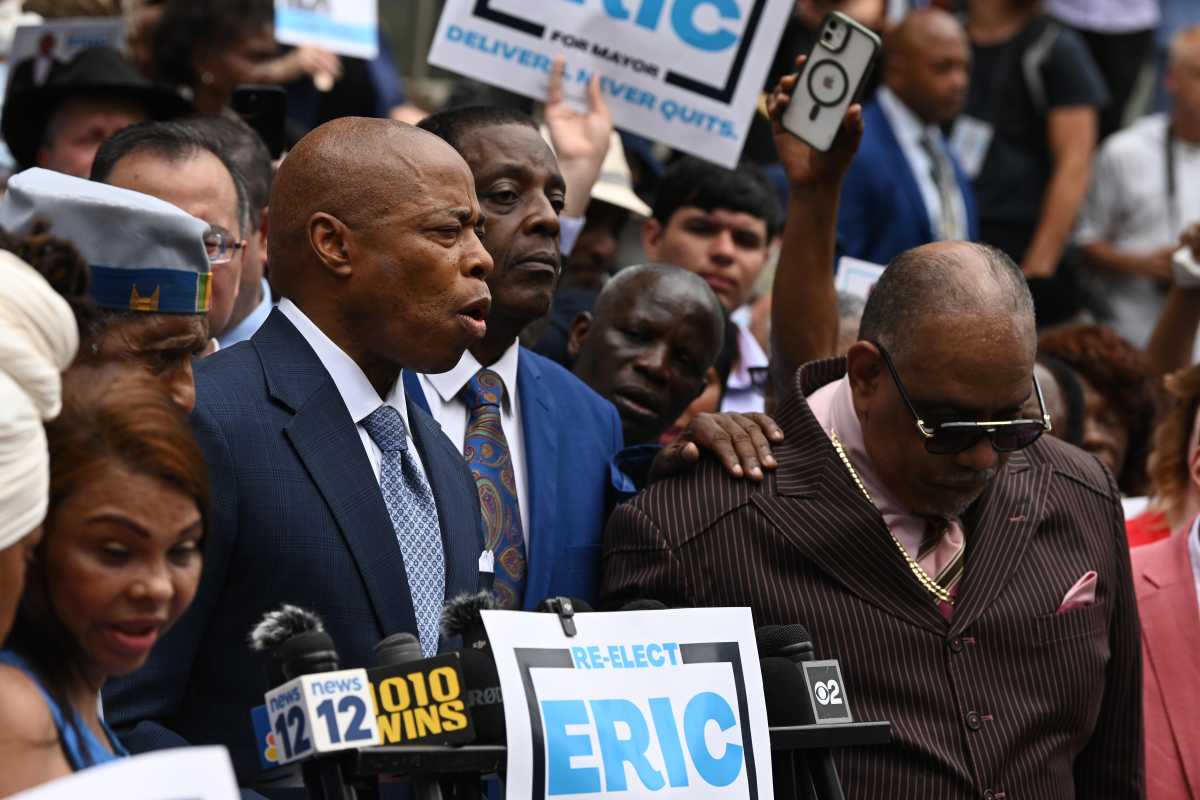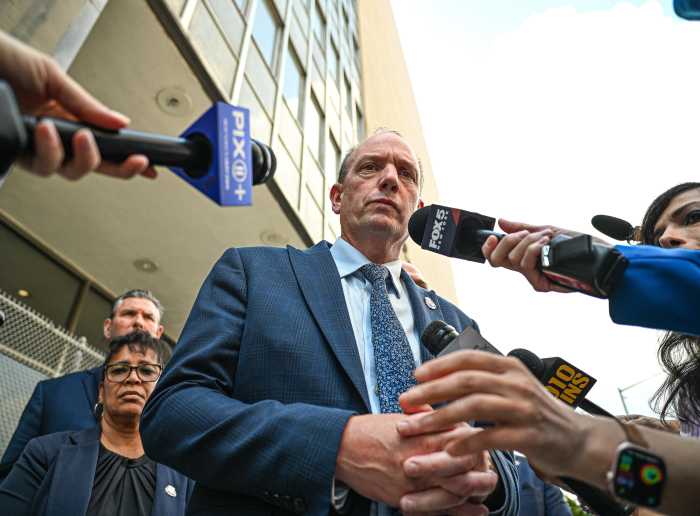It could have been worse. Imagine that the debt-ceiling issue had come up when, alongside this particular Republican-controlled House of Representatives, there was a Republican-majority Senate as well as a Republican president in office. One can only shudder at the thought of what would likely have been shoved down the nation’s throat.
When it came down to real crunch time this past weekend, just before the August 2 default deadline, Mitch McConnell, the Senate minority leader, made mention in his remarks about the parties’ need to compromise, that Republicans controlled just one of the three institutions involved in the unfolding of this ugliest of Washington scripts. It is a measure of how deep into the grunge political behavior had descended, that mere affirmation of a known power split becomes an acknowledgment bordering on shock. The Republican/Tea Party m.o. had all along been unblinking obliviousness to how Washington’s power grid is currently configured. To listen to the fire-and-brimstone preachments of GOP House members ever since this issue has been at center stage, you would think they controlled all the levers of power, and that theirs was a mandate from the people of America to cooperate with nothing save the hard-line agenda they haughtily believe themselves ordained to prescribe for the country. That kind of maniacal obsession would enkindle an irrationality in which one out of three confoundingly translates to assurance of absolute dominion.
Over the course of this dogfight, there seemed little doubt of much more readiness to compromise on the Democratic side than among Republicans. Economist Paul Krugman, in his New York Times column recently took issue with how the media has reported this. Krugman thought that journalists (whether because of not wanting to be seen as engaging in unbalanced reporting, or for whatever else), were actually failing in their professional obligation when they chose to handle Republican inflexibility with kid gloves, rather than call them out on it. He noted that, “when reporting on political disputes always implies that both sides are to blame, there is no penalty for extremism.”
And right he is about that. Sometimes simply allowing the extremists a platform to hopefully dig their own graves isn’t enough. The duty of the media properly includes, as Krugman asserts, pointing out to the citizenry brazen abuse of power, as we’ve seen in the debt-limit fracas. Using a financial crisis with potentially devastating impact across the board to score ideological points was a classic illustration of how not to conduct the people’s business. For those who have assumed a responsibility to inform, there’s no glory in turning a blind eye to such attempts at corrupting the process of governance.
The degree of gullibility resident in the population comes into play as well in the polemical browbeating that is frequently the extremists’ weapon of choice. That Michele Bachmann is today regularly positioned among the leading Republican contenders for the party’s 2012 nomination has directly to do with their belief in shrillness as a fail-safe device in the political marketplace. Charlatans in the political mix are hardly new. But this debt-ceiling issue was instructive of just how much bait-and-switch chicanery factored in the so-called Tea Party revolt and the resulting congressional realignment following the 2010 elections. A stubbornly distressing unemployment picture understandably gave impetus to a belligerent chorus for change. But it’s pretty safe to assume that lots of working class and middle income voters who bought into last year’s change frenzy would not also have been sold on such action designs as drastic and insensitive cutting back of critical government services, coupled with being shamelessly deferential to big business and the affluent, that were unapologetically brandished by GOP caucus folk in this impasse as core components of their rally cry.
And their formula for success in the arena is never without the requisite dollop of bluster. House speaker John Boehner was boasting on TV that the compromise which finally came up for a congressional vote contained “98 percent” of what he had tried for in the earlier package he couldn’t get by his own caucus. While the so-called “Boehner bill” drew front-page attention as the solution du jour, some big cheese of the Tea Party had weighed in with a threat that anyone who voted for it would be “targeted” next time around at the polls. That’s Tea Party bellicosity at full gallop where, far from running for cover after a months-long odious display dissembling leadership, there remains presumptuousness in spades in the Tea Party culture to engender talk of targeting wrongdoers! In that universe, “our way or no way” defiance obviously counts for nothing.
The electorate can’t very well be unmoved by continuing bad news on the economic front. The challenge for President Obama to retain support even from some heretofore firmly in his base, absent notable signs of upward trending of economic indicators, will be daunting. As if the public wasn’t well enough under siege by all that gloom, here came the Tea Party and kindred spirits in the GOP to favor us with the best dramatization yet of indifference to the will of the hoi polloi. “Caught in the middle” never so perfectly captioned the common man’s plight.
In the end, though, the debt-ceiling debate provided Democrats with a premium opportunity to explode any myth of advocacy for the powerless arising on the other side…never mind the impudence of that “targeting” threat.






















